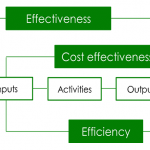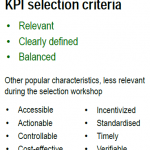Which data matters the most?

The evolution of technology has always been an important factor, shaping societies and economies alike. If a few decades ago, managers were forced to trust their instincts and experience when creating customer profiles, nowadays access to that type of data can be attained instantly with the right technology.
Today, the challenge lies not in getting information about your business’s overall performance, but in spotting what matters the most in an ocean of data!
In 2012, a research study initiated by The Economist Intelligence Unit indicated that 40% of executives were complaining about having too much data and the difficulties this generated in regards to decision-making and planning.
Consequently, new business models, less data generation and more management are needed, as said by Philipp Lutzny, Senior Director Global Order Fulfillment & SCM at ADVA Optica Networking, at the Supply Chain Analytics conference: ”KPIs and performance measurement is being taken to generate data, but finally not acting on it.”
The massive amount of information you are able to obtain today can help professionals spot opportunities or threats beforehand and take preemptive actions, or they can get lost in details and lose the big picture altogether.
In this great expanse of data, popular management tools that keep executives focused on the company’s strategy and development are Key Performance Indicators (KPIs). The performance scorecard enables policy formulation and keeps the board of directors with the eyes on the prize – further improving their company.
However, organizations worldwide – regardless of their business sector, have felt at a certain moment in time that their current KPIs have lost any intrinsic essence they had and are no longer “key”. Selecting the right KPIs from a vast amount of business metrics is quite the task and no off-the-shelf list of KPIs for your industry will fix this issue.
There is no standard answer in terms of which data is important for each company, but there are several approaches that proved to be effective in practice, by feeding the right information for decision-making:
- Data that matters for your business should be reflected in a performance scorecard through KPIs. An annual strategic planning process should ensure not only that your business objectives are achievable and relevant, but it should also set in place the KPIs used to effectively monitor them. Given the tight relationship between objectives and KPIs, it is important to ensure that strategic objectives are based on true value drivers for your business.
- Keep the strategic scorecard focused on the big picture – try to cover all the important aspects in the Balanced Scorecard (financial, customer, internal processes and people), but limit the number of KPIs.
- “Key” from Key Performance Indicators is not defined by how complicated the calculation formula is or whether it measures an outcome instead of a process. “Key” refers to being relevant to the objective measured, so that it offers managers all the information they require in order to make informed and correct decisions.
- All other metrics that may be important can be monitored in a dashboard. They can provide further details on the business’s environment.
- As the business evolves, KPIs should as well. Even if some strategic objectives may stay the same for extended periods of times, the way they are measured can change.
Nowadays, companies are able to measure the impact of their products and services on customer experience through # Customers satisfaction index or through % Net Promoter Score. A logistics division could also measure the effectiveness of delivery from a qualitative perspective % Orders delivered without damaged products or from a timeliness perspective % On-time delivery.
No matter the method, one always has to keep in mind this piece of information: if you want to improve something, such as a business or company, you must first know how to accurately and properly measure it!
Image source:

Tags: Ask the Experts, Business Strategy, KPI Selection





